Related Research Articles

Cinesound Productions Pty Ltd was an Australian feature film production company. Established in June 1931, Cinesound developed out of a group of companies centred on Greater Union Theatres that covered all facets of the film process, from production to distribution and exhibition. Cinesound Productions established a film studio as a subsidiary of Greater Union Theatres Pty Ltd based on the Hollywood model. The first production was On Our Selection (1932), which was an enormous financial success.

The Desert Rats is a 1953 American black-and-white war film from 20th Century Fox, produced by Robert L. Jacks, directed by Robert Wise, that stars Richard Burton, James Mason, and Robert Newton. The film's storyline concerns the Siege of Tobruk in 1941 North Africa during World War II.

The Rats of Tobruk is a 1944 Australian film directed by Charles Chauvel. An abridged version was released in the United States in 1951 as The Fighting Rats of Tobruk. The film follows three drover friends who enlist in the Australian Army together during World War II. Their story is based on the siege of the Libyan city of Tobruk in North Africa by Rommel's Afrika Korps. The partly Australian defenders held the city for 250 days before being relieved by British forces.
William Percy Lipscomb was a British-born Hollywood playwright, screenwriter, producer and director. He died in London in 1958, aged 71.

Forty Thousand Horsemen is a 1940 Australian war film directed by Charles Chauvel. The film tells the story of the Australian Light Horse which operated in the desert at the Sinai and Palestine campaign during World War I. It follows the adventures of three rowdy heroes in fighting and romance. The film culminates at the Battle of Beersheba which is reputedly "the last successful cavalry charge in history". The film was clearly a propaganda weapon, to aid in recruitment and lift the pride of Australians at home during World War II. It was one of the most successful Australian movies of its day. It was later remade in 1987 as The Lighthorsemen.
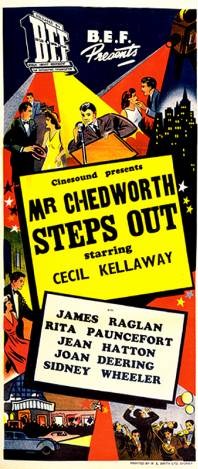
Mr. Chedworth Steps Out is a 1939 Australian comedy film directed by Ken G. Hall starring Cecil Kellaway. Kellaway returned to Australia from Hollywood to make the film, which features an early screen appearance by Peter Finch.
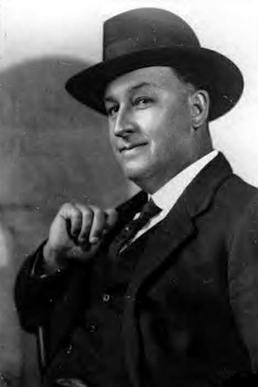
Raymond Longford was a prolific Australian film director, writer, producer, and actor during the silent era. Longford was a major director of the silent film era of the Australian cinema. He formed a production team with Lottie Lyell. His contributions to Australian cinema with his ongoing collaborations with Lyell, including The Sentimental Bloke (1919) and The Blue Mountains Mystery (1921), prompted the Australian Film Institute's AFI Raymond Longford Award, inaugurated in 1968, to be named in his honour.
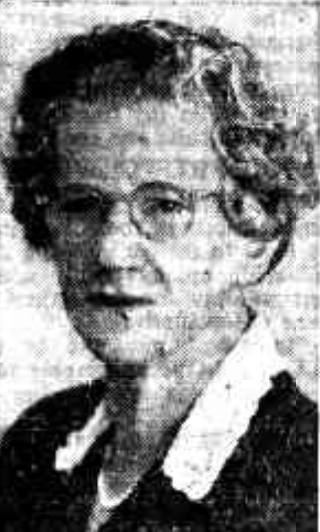
Ruth Beatrice Fairfax was a founding member of the Australian Country Women's Association and the first President of the Queensland Country Women's Association. The federal electorate of Fairfax is named in her honour.

The Flying Doctor is a 1936 Australian-British drama film directed by Miles Mander and starring Charles Farrell, Mary Maguire and James Raglan. The Royal Flying Doctor Service of Australia operate in the Australian Outback. Noted as Australia's first "sound" feature film, The Flying Doctor was also the country's first feature-length film based on aviation.
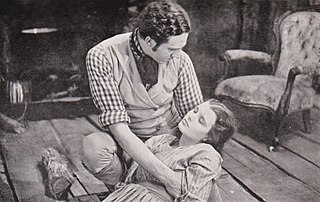
Heritage is a 1935 Australian historical film directed by Charles Chauvel.
The Silence of Dean Maitland is a 1934 Australian film directed by Ken G. Hall, and based on Maxwell Gray's 1886 novel of the same name. It was one of the most popular Australian films of the 1930s.
South West Pacific is a 1943 propaganda short Australian film directed by Ken G. Hall which focuses on Australia as the main Allied base in the South West Pacific area. Actors depict a cross section of Australians involved in the war effort.
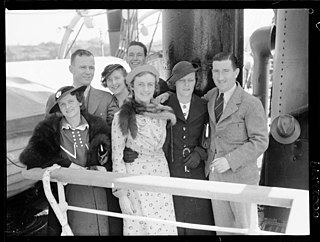
Mystery Island is a 1937 Australian film shot almost entirely on location near Lord Howe Island. It is best remembered for the mysterious disappearance of two of its cast after filming completed.
White Death is a 1936 Australian film directed by Edwin G. Bowen and starring Zane Grey as himself. He filmed it during a fishing expedition to Australia and it marked the first time he had played a leading role in a film.
Frederick Joseph Thwaites was an Australian novelist whose books sold over four million copies. He was best known for his first work The Broken Melody, which was adapted into a 1938 film.
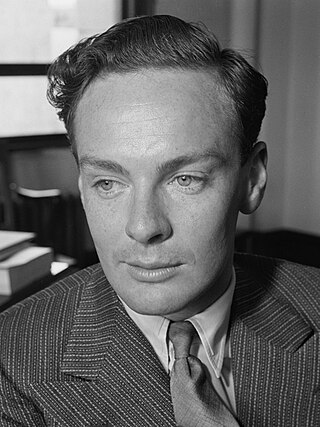
John Wood was an Australian who acted on the stage and briefly became a film star in Hollywood and Britain in the late 1930s.
John Fleeting, real name Claude Stuart Fleeting, was an Australian actor best known for his film appearances for Ken G. Hall.

Dendy Cinema Pty Limited is an Australian cinema chain. Dendy operates in Canberra, Brisbane, Sydney and the Gold Coast. Its main competitors are Hoyts, Village, Event, Wallis Cinemas, Palace Cinemas and Reading. It is a subsidiary of Icon Productions.
George David Malcolm (1904–1977) was an Australian producer, cameraman and executive.
Eaglets is a 1935 Australian documentary short film that was theatrically released. It was made by Commonwealth Film Laboratories to promote the Model Flying Club of Australia. George D. Malcolm directed, shot, wrote and edited it. Keith Macpherson Smith was a patron of the club. The film runs for eleven minutes.
References
- ↑ "COMPANY NEWS". Sydney Morning Herald . John Fairfax. 18 February 1926. p. 13. Retrieved 20 February 2015.
- ↑ "7000 FEET OF FILM". Sydney Morning Herald . John Fairfax. 27 July 1927. p. 13. Retrieved 20 February 2015.
- ↑ Poppy de Souza, 'Commonwealth Film Laboratories', Australian Screen Online accessed 19 August 2012
- ↑ ""Conquest"". Gosford Times & Wyong District Advocate . NSW: National Library of Australia. 7 November 1935. p. 14. Retrieved 20 February 2015.
- ↑ ""EAGLETS."". Sydney Morning Herald . John Fairfax. 7 December 1935. p. 12. Retrieved 20 February 2015.
- ↑ "ALL-AUSTRALIAN ISLAND FILM". The Courier-Mail . Brisbane: Queensland Newspapers. 14 July 1936. p. 16. Retrieved 20 February 2015.
- ↑ "ALL-AUSTRALIAN ISLAND FILM". The Courier-Mail . Brisbane: Queensland Newspapers. 14 July 1936. p. 16. Retrieved 20 February 2015.
- ↑ ""THE ADVENTURES OF DOT"". The Transcontinental . Port Augusta, SA: National Library of Australia. 23 September 1938. p. 4. Retrieved 20 February 2015.
- ↑ "FILM WORLD". The West Australian . Perth: National Library of Australia. 4 March 1938. p. 4. Retrieved 20 February 2015.
- ↑ "3 PROPAGANDA FILMS". The Argus . Melbourne: National Library of Australia. 16 January 1941. p. 9. Retrieved 20 February 2015.
- ↑ "Tobruk Rats help to put epic siege on screen". Australian Women's Weekly . Australian Consolidated Press. 6 November 1943. p. 9. Retrieved 20 February 2015.
- ↑ "£1,700,000 FILM". The Mail . Adelaide: News Limited. 7 October 1944. p. 8. Retrieved 20 February 2015.
